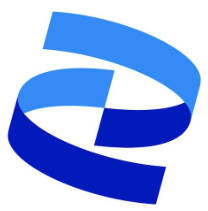Responsibilities
- Transfer and validated manual to automated QC workflow steps
- Develop, validate, and optimize automated methods for sample preparation, analysis, and data collection
- Design and execute validation experiments to optimize assay and workflow parameters
- Conduct verification and validation testing of integrated systems to verify proper functionality and performance
- Analyze automation workflows to identify bottlenecks and areas for optimization
- Implement troubleshooting methodologies to identify and resolve complex assay method issues
Requirements
- Bachelor's or higher degree in Engineering, Computer Science, Biotechnology, or a related field
- 2-4+ years of experience designing, implementing, and maintaining laboratory automation systems
- Experience programming and optimizing liquid handling methods
- Experience developing and implementing integrated automation solutions using Biosero’s Green Button Go software
- Experience with laboratory analytical instruments and automated systems
- Experience integrating and managing assay results with LIMS
- Familiar with flow cytometry, genomic, and cell-based assays
- Strong technical writing skills and experience authoring Standard Operating Procedures (SOPs), documentation, and training materials
- Proficiency in programming languages such as Python or C#
- Excellent problem-solving skills and the ability to troubleshoot technical issues
- Strong communication skills to collaborate effectively with cross-functional teams
- Attention to detail and the ability to work independently and manage multiple tasks simultaneously
- Creative, self-motivated, eager to take on a wide variety of tasks and grow with the evolving technology
- Self-awareness, integrity, authenticity, and a growth mindset
Top Skills

What We Do
Cellares is revolutionizing cell therapy manufacturing. We are developing a one-of-a-kind solution, The Cell Shuttle, to overcome the challenges associated with manufacturing so these life-saving therapies are affordable and widely available to patients who can benefit.
The clinical impact of cell therapy in treating cancer has been proven, but this therapeutic approach has several limitations, especially in manufacturing, leaving extremely sick patients waiting for treatment and desperate for hope.
Since cell therapy is currently produced for a single patient at a time, it is expensive to manufacture, requiring significant time and resources, and is difficult to scale.
Preclinical and clinical scientists, as well as commercial cell therapy manufacturers also lack the options to fully automate their manufacturing process quickly, safely, cost-effectively and at the scale they need.
The Cell Shuttle is an automated and closed end-to-end manufacturing solution that is flexible and scalable, enabling customers to run exact processes specified for their cell therapy. Compared with the current manual manufacturing processes for cell therapy, the Cell Shuttle’s next-generation automated manufacturing solution has 10 times the scalability (meaning 10 times more patient doses can be produced simultaneously), enables a three-fold reduction in process failure rates and will reduce the per-patient manufacturing cost by up to 70 percent for most processes.







